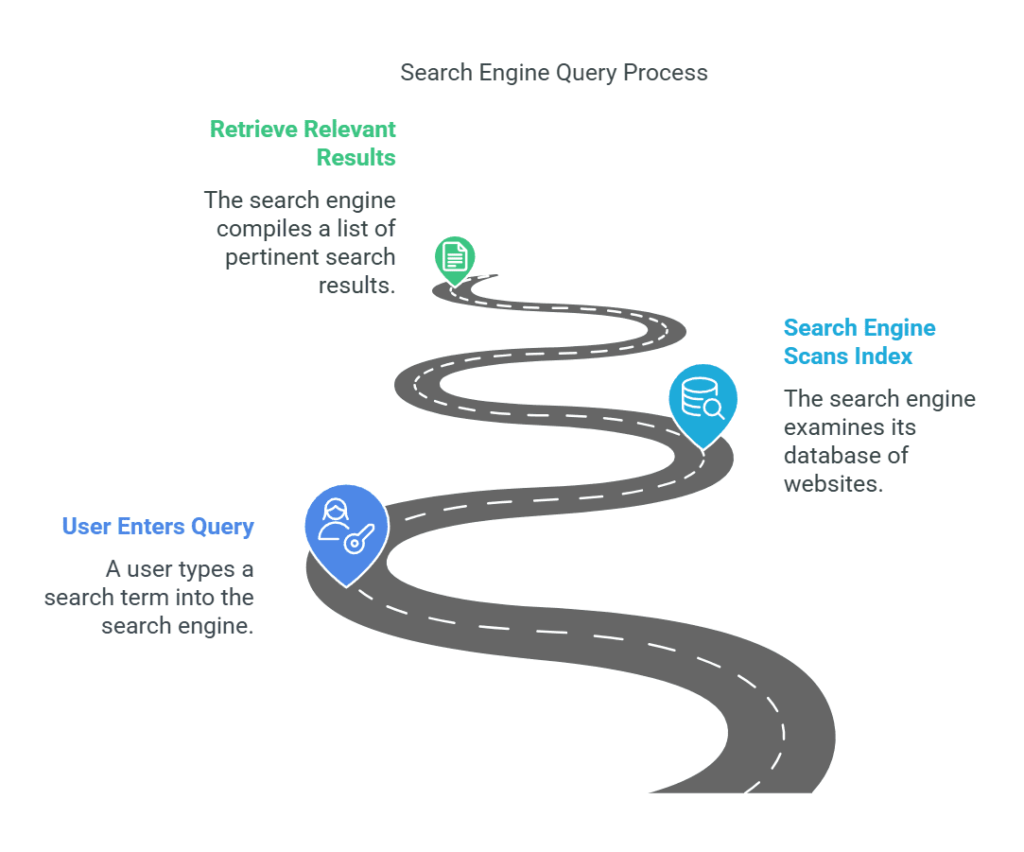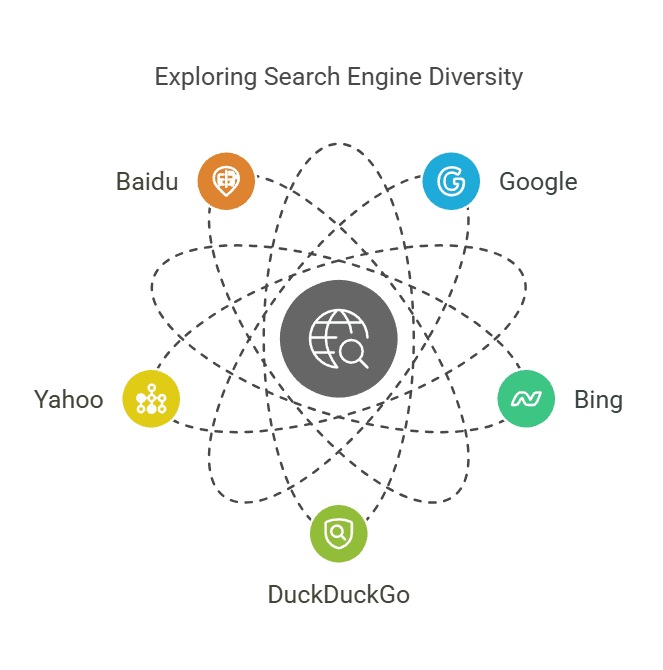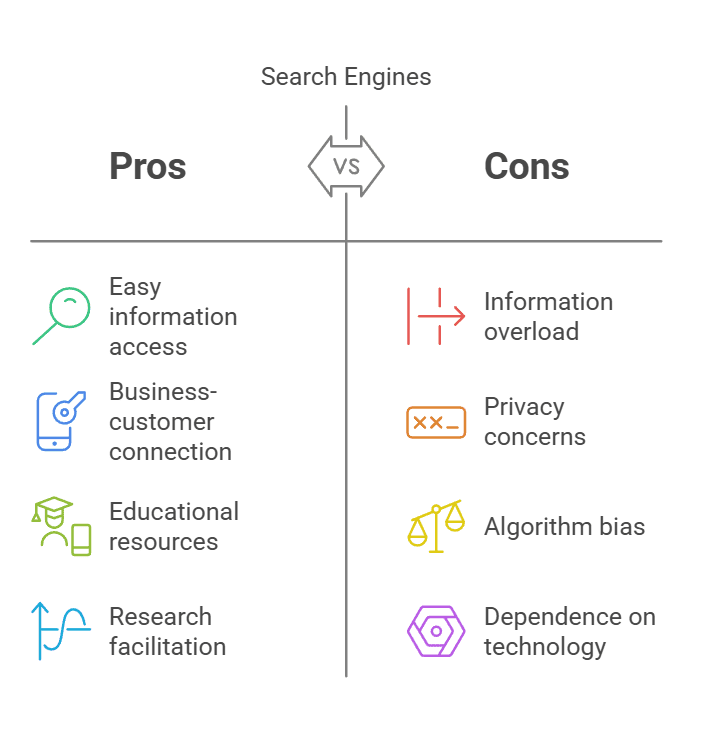Search engines have become an integral part of the internet experience. From helping users find information quickly to aiding businesses in attracting customers, search engines are at the heart of online interaction. In this comprehensive guide, we will explore what search engines are, how they work, the types of search engines, and their importance in the digital age. This blog is designed to optimize the keywords “what are search engines,” “how do search engines work,” “types of search engines,” and “importance of search engines,” among others, to provide a clear and detailed understanding of this essential technology.
What Are Search Engines?

A search engine is an online tool or software program designed to search the internet for information based on user queries. When a user enters a query, the search engine scans its vast index of websites and retrieves a list of results that it deems most relevant to the search terms. These results are typically presented in the form of a list of web pages, images, videos, or other relevant content. The ultimate goal of a search engine is to help users find the most accurate and useful information quickly and efficiently.
Some of the most commonly known search engines include Google, Bing, Yahoo, DuckDuckGo, and Baidu. Each of these search engines operates in slightly different ways but fundamentally performs the same task—helping users find the information they need online.
How Do Search Engines Work?
The functionality of search engines can be broken down into three main processes: crawling, indexing, and ranking. These processes are carried out by search engine bots or spiders, which are automated programs designed to explore and organize the vast amount of data available on the web.
Crawling
The first step in the search engine process is crawling. Crawling refers to the process by which search engines send out bots to scan and “crawl” various websites across the internet. These bots follow links from one page to another, collecting and storing information about the pages they visit. Crawling is essential because it allows search engines to discover new content and stay up-to-date with the latest web pages.
Indexing
Once the bots have crawled a web page, the next step is indexing. Indexing is the process of organizing the information collected by the bots and storing it in a massive database called the index. The index is like a giant library of all the content found on the web. When a user submits a query, the search engine looks through its index to find relevant results. Without this indexing process, search engines would not be able to retrieve the information that users are looking for.
Ranking
The final process in how search engines work is ranking. Once the content has been indexed, the search engine must decide which pages are the most relevant to the user’s query. This is done through a ranking algorithm, which evaluates several factors to determine the order in which the results should be displayed. Factors that influence ranking include keyword relevance, page quality, user experience, site authority, and many other criteria. The goal of ranking is to provide the user with the most relevant and useful results first.
Search engines continually update and refine their algorithms to improve the accuracy of their results and offer a better user experience.
Types of Search Engines
While Google is the most widely used search engine, there are many other types of search engines that cater to different needs. Below are the most common types:

General Search Engines
General search engines are designed to provide users with a broad range of results across all topics. They index billions of web pages and return results based on the user’s query. Google, Bing, and Yahoo are examples of general search engines. These search engines can be used for a wide variety of searches, from finding information on various topics to shopping, entertainment, news, and more.
Specialized Search Engines
Specialized search engines focus on specific types of content. For example, YouTube is a search engine specifically for videos, while Google Images allows users to search for images. Other specialized search engines may focus on specific industries, such as academic research or medical information, providing highly targeted results for particular needs.
Vertical Search Engines
Vertical search engines are similar to specialized search engines but are narrower in scope. They often target specific industries or niches. For example, Yelp is a vertical search engine for local businesses and reviews, while Zillow focuses on real estate. These search engines provide a deeper level of results within a specific category, making them particularly useful for users seeking specialized information.
Meta Search Engines
Meta search engines do not index content themselves but instead pull results from other search engines. They aggregate results from multiple sources, giving users a wider variety of results. Examples of meta search engines include Dogpile and Metacrawler. These search engines are useful when users want to compare results from different engines in one place.
Privacy-Focused Search Engines
As privacy concerns grow, many users are turning to search engines that emphasize protecting user data. These search engines, like DuckDuckGo, do not track users’ searches or store personal information, providing a higher level of privacy compared to more mainstream options. They also prioritize delivering unbiased search results without personal data influencing the rankings.
Importance of Search Engines

Search engines play a crucial role in today’s digital ecosystem. Without search engines, finding relevant information on the internet would be incredibly difficult. Search engines help businesses connect with customers, allow individuals to access important educational content, and enable researchers to find data and studies to further their work.
Helping Users Find Information
Search engines are the gateway to knowledge on the internet. Whether it’s finding recipes, reading news, researching products, or learning about a specific topic, search engines simplify the process of discovering information. By providing relevant search results, they enable users to find what they are looking for quickly and efficiently.
Enabling Online Marketing
For businesses, search engines are a key component of online marketing. Search engine optimization (SEO) and paid search engine advertising (PPC) are two common strategies used by businesses to attract customers through search engines. Optimizing a website for search engines ensures that a business’s website appears in relevant search results, driving traffic and potential customers. PPC advertising allows businesses to pay for placement at the top of search results, ensuring visibility.
Supporting Local Search
Search engines also enable local search, helping users find businesses, products, and services in their geographic area. This is especially important for small businesses that rely on local customers. Google’s Local Pack and Bing Places for Business are examples of features that provide users with information on nearby businesses, including maps, reviews, and contact details.
Promoting Innovation and Discovery
Search engines have played a significant role in the discovery and development of new content and ideas. They have revolutionized how we access educational resources, connect with peers, and stay up-to-date on current events. Furthermore, search engines continually evolve, adding new features like voice search, video search, and personalized results, making it easier than ever for users to find information.
Supercharge your online strategy with expert Fully Managed SEO Services and a free SEO consultation designed just for you. Don’t wait—visit Fully Managed SEO Services today, and schedule your personalized advice session at Free SEO Consultation.
Conclusion
Search engines are indispensable tools that have revolutionized the way we access and interact with information online. By crawling, indexing, and ranking web content, search engines help users find the most relevant and valuable information with just a few clicks. Understanding how search engines work, the different types of search engines, and their importance in the digital landscape is essential for anyone navigating the online world, whether as a business owner looking to optimize their website or as a user seeking knowledge. As search engine technology continues to evolve, we can expect even more advanced features and capabilities, further enhancing our ability to find the information we need in the digital age.
 WhatsApp Now
WhatsApp Now
 +(91) 8700778618
+(91) 8700778618



